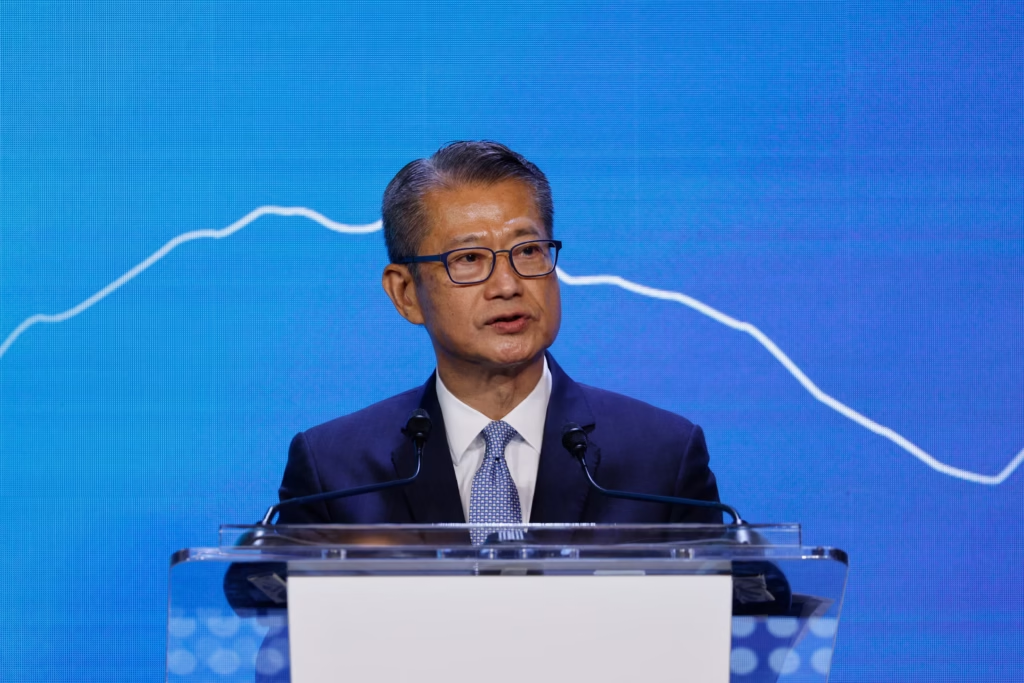Saudi Arabia is quickly emerging as a key player in the global financial market. The CEO of the Saudi Exchange recently announced that several Asian companies are in talks to list their shares on the Saudi stock market. This growing interest signals a significant shift in where global companies want to raise capital and grow their businesses.
In this article, we will explore why Asian companies are looking to Saudi Arabia, how the kingdom is making its stock market attractive to foreign firms, and what this means for investors and the economy at large.
Saudi Arabia’s Vision to Become a Global Financial Hub
Saudi Arabia has been working hard to diversify its economy under its ambitious Vision 2030 plan. Traditionally known for its oil exports, the kingdom wants to build new industries such as tourism, technology, renewable energy, and finance. A major part of this strategy is to develop a modern and globally connected capital market.

The Saudi Exchange, also known as Tadawul, has been upgraded to meet international standards. It now offers better technology, clearer regulations, and improved access for foreign investors. These changes have made Saudi Arabia a more attractive place for companies outside the kingdom to list their shares.
Khalid Al Hussan, CEO of the Saudi Exchange, recently confirmed that the exchange is holding discussions with several Asian companies about listing options. These talks reflect Saudi Arabia’s growing appeal as a place for Asian firms to raise funds and expand internationally.

Why Are Asian Companies Interested in Listing in Saudi Arabia?
There are several reasons why Asian firms see Saudi Arabia as a promising place for their stock market listings:
- Access to a Large Pool of Investors: Saudi Arabia’s market includes a wide range of investors such as institutional investors, retail traders, and government-backed funds. This diversity makes it easier for companies to raise capital.
- Strong Market Liquidity: The Saudi stock market is one of the most liquid in the Middle East. Liquidity is important because it allows investors to buy and sell shares quickly and easily without affecting the price too much.
- Better Valuations: Companies sometimes receive higher valuations in the Saudi market compared to their home countries. This means they can raise more money for the same amount of shares.
- Stable Business Environment: Saudi Arabia offers a politically stable and business-friendly environment, which reassures investors and companies about long-term growth prospects.
- Currency Stability: The Saudi riyal is pegged to the US dollar, reducing currency risks for foreign investors and companies.
- Strategic Location: Saudi Arabia’s geographic position between Asia, Europe, and Africa makes it a strategic hub for companies looking to expand globally.
Al Hussan highlighted that these factors combined create a compelling case for Asian companies to consider Saudi Arabia seriously.
What Does Listing in Saudi Arabia Involve?

Listing a company means offering its shares for sale on a stock exchange. When a company lists on a stock exchange, it opens up to new investors and gains access to public capital. For Asian companies, Saudi Arabia offers two main listing options:
- Direct Listing: The company lists its shares directly on the Saudi Exchange, complying with local listing rules and regulations.
- Dual Listing: The company remains listed on its home exchange but also lists shares in Saudi Arabia. Dual listings provide wider investor reach and can improve liquidity and valuation.
Saudi Tadawul has been working to simplify the listing process for foreign companies. The exchange has introduced reforms such as faster approvals, clearer guidelines, and support services to help companies navigate the process smoothly.
Examples of Successful Saudi Market Listings
Saudi Arabia’s capital market has already seen several successful listings that show the market’s growing strength:
- Saudi Aramco: The largest IPO in history took place in Saudi Arabia, raising $29.4 billion in 2019. It attracted global attention and set new standards for the kingdom’s financial markets.
- ACWA Power: A major renewable energy company that successfully listed in Saudi Arabia, highlighting the kingdom’s push towards green energy.
- Nahdi Medical: One of the largest healthcare providers in Saudi Arabia, which also raised significant capital through the Tadawul Exchange.
These examples demonstrate that Saudi Arabia can handle large and complex listings, which builds confidence for Asian companies considering the market.
Dual Listings: A Popular Strategy for Asian Firms
Many Asian companies are exploring dual listings as a way to access new capital while maintaining ties with their home markets. Dual listings allow companies to:
- Increase their visibility in different regions.
- Attract investors with different investment preferences.
- Reduce risks by diversifying where they raise funds.
Saudi Arabia’s market is emerging as a top choice for dual listings because of its size, liquidity, and growing international reputation.
Saudi Exchange’s Plan to Attract More Global Firms
To further boost foreign listings, the Saudi Exchange is actively pursuing partnerships and agreements with other major stock exchanges worldwide. These agreements aim to align regulations, share best practices, and promote cross-border investment.
Recently, the Saudi Exchange signed memoranda of understanding (MOUs) with exchanges in Asia and Europe. This cooperation will make it easier for foreign companies and investors to participate in Saudi Arabia’s market.
Additionally, the exchange is preparing to launch new financial products such as:
- Green Bonds: Bonds specifically aimed at financing environmentally friendly projects.
- Derivatives: Financial contracts that allow investors to hedge risks.
- Exchange-Traded Funds (ETFs): Investment funds traded on the exchange that give investors easy access to a basket of shares.
These products will make the Saudi market more versatile and appealing to a wide range of investors and companies.
Impact on Saudi Arabia’s Economy
The listing of Asian companies will bring many benefits to Saudi Arabia’s economy:
- Increased Foreign Investment: More listings mean more foreign capital flowing into the kingdom.
- Job Creation: Growing companies will create jobs and boost local business sectors.
- Economic Diversification: Expanding the range of companies listed supports Vision 2030’s goal of reducing reliance on oil.
- Technology Transfer: Asian firms often bring innovative technologies and management practices, benefiting Saudi industries.
Saudi Arabia’s economy will become more connected with global markets, supporting long-term growth and stability.
Challenges to Consider
Despite the opportunities, some challenges remain for Asian companies looking to list in Saudi Arabia:
- Regulatory Compliance: Companies must comply with Saudi regulations, which may differ from their home countries.
- Cultural Differences: Business practices and corporate governance standards may vary.
- Market Education: Investors in Saudi Arabia may need time to understand new industries or business models.
However, the Saudi Exchange is addressing these challenges through investor education programs and ongoing regulatory reforms.
What’s Next for Asian Companies and Saudi Arabia?

As talks continue, the number of Asian companies listing in Saudi Arabia is expected to grow. This trend will strengthen Saudi Arabia’s position as a global financial hub and create more opportunities for investors.
For Asian companies, Saudi Arabia offers a promising alternative to traditional markets, providing access to a large investor base and a supportive business environment.
Saudi Arabia’s bold efforts to open its capital markets to the world are already showing results, and the coming years will likely see even greater integration with Asia’s dynamic economies.
Conclusion: Saudi Arabia’s Growing Appeal to Asian Firms
Asian companies listing in Saudi Arabia is no longer just a possibility—it is becoming a reality. With its modernized stock exchange, strong economic growth, and strategic vision, Saudi Arabia offers many advantages to international firms.
The Saudi Exchange CEO’s announcement highlights the kingdom’s increasing importance on the global financial stage. For investors and businesses alike, Saudi Arabia is a market to watch in the years ahead.
Do follow UAE Stories on Instagram
Read More: IEA Unveils Global LNG Capacity Tracker to Track Historic Growth












